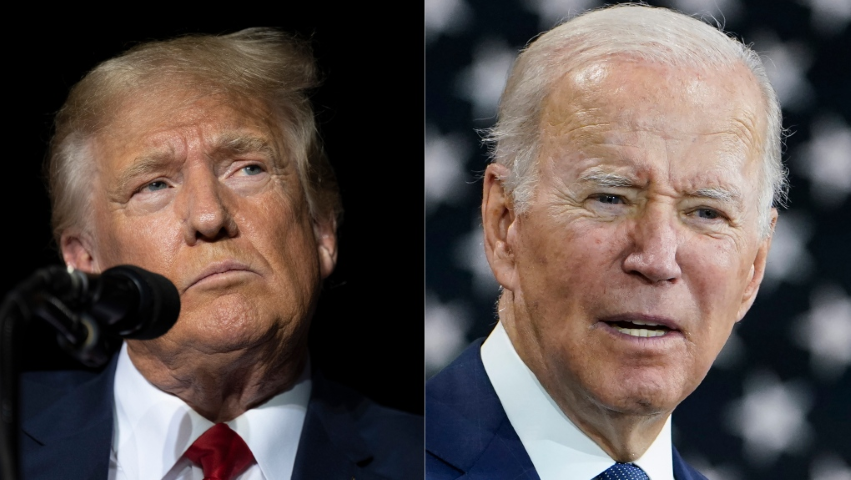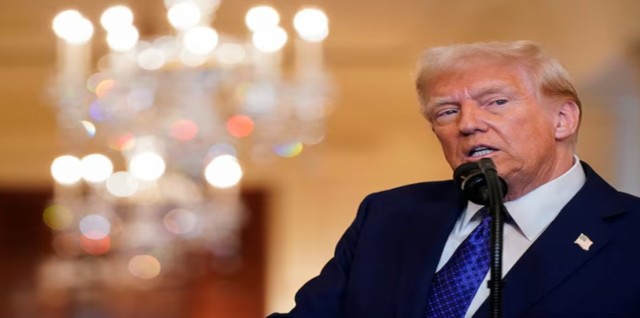
This pair of images displays ex-President Donald Trump on the left and current President Joe Biden on the right. These photos were taken by the Associated Press.
In the heart of Dearborn, Michigan, a pivotal scene unfolded on Tuesday as U.S. President Joe Biden and former President Donald Trump emerged triumphant in the Michigan primaries. The results cemented the likelihood of a high-stakes rematch between these political giants, set to captivate the nation's attention once more.
Biden's victory over Minnesota Representative Dean Phillips in the Democratic primary seemed almost predestined. Yet, amidst the celebration, a shadow loomed in the form of the "uncommitted" vote. Michigan, once a bastion of support for Biden, now bore witness to a burgeoning dissent within his coalition, raising questions about the solidity of his footing in the state and beyond.
Meanwhile, Trump's relentless march through the Republican primaries reached another milestone with his conquest of Michigan, vanquishing his major contender, former U.N. Ambassador Nikki Haley. The Trump campaign's relentless pursuit of delegates signalled an unwavering determination to secure the Republican nomination, with eyes set on an imminent victory by mid-March.
Yet, beneath the surface of apparent triumphs lay a subtle undercurrent of uncertainty for both candidates. For Biden, the swelling tide of "uncommitted" votes hinted at potential fractures within the Democratic base, threatening the very foundation of his electoral strategy. Conversely, Trump faced his challenges, grappling with dissent within his party and a lingering cloud of legal woes that threatened to overshadow his campaign.
As the dust settled on Tuesday's showdown, both camps anxiously awaited the verdict not just on victory, but on the resonance of their messages with the electorate. For Biden, the grassroots movement rallying around the "uncommitted" vote posed a formidable challenge, spearheaded by influential voices like Representative Rashida Tlaib and former Representative Andy Levin. Their impassioned plea for a course correction in Biden's approach to the Israel-Hamas conflict underscored the potency of grassroots activism in shaping political discourse.
Meanwhile, Trump's dominance in early primaries underscored his enduring appeal among key Republican demographics, even as he grappled with dissent from within the party ranks. Haley's tenacity and fundraising prowess hinted at a lingering resistance to Trump's stronghold on the GOP, suggesting a potential fissure in the party's unity.
As the nation braced itself for the unfolding drama of the 2024 election, the Michigan primaries served as a harbinger of the battles yet to come. In a landscape fraught with uncertainty and intrigue, the stage was set for a clash of political titans, with the fate of the nation hanging in the balance.















